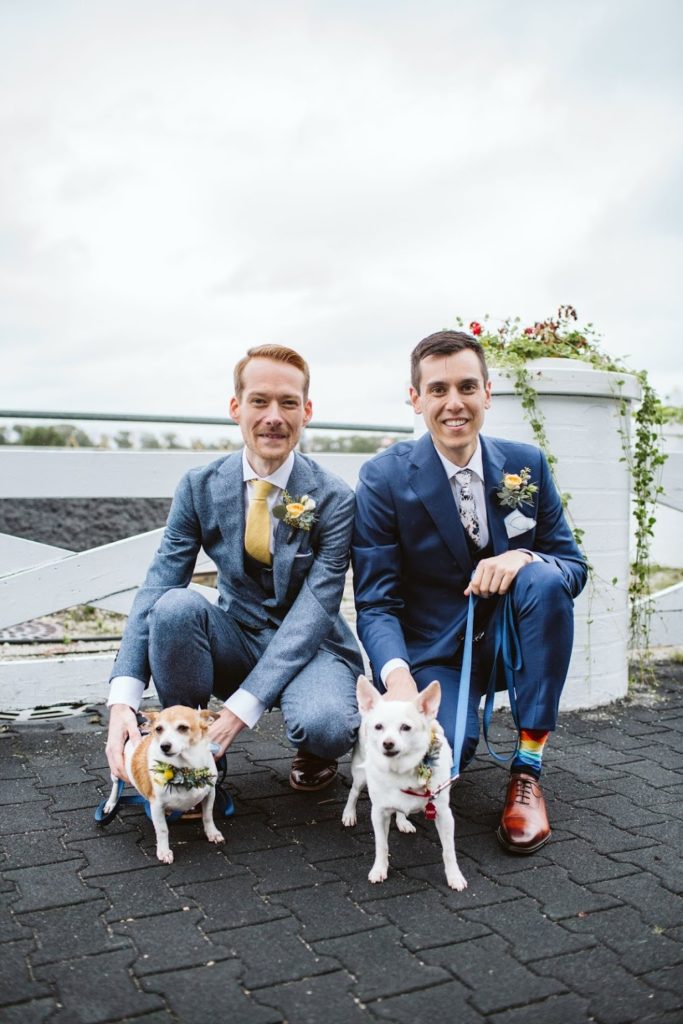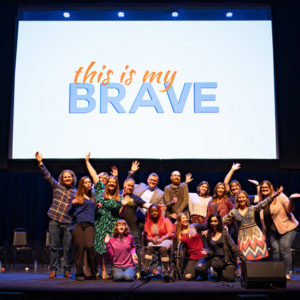Orthorexia Recovery: Piece by Piece
By: Jason Wood
In July of 2020, I came to the realization that I had long battled disordered eating; however, I didn’t understand exactly what or who the enemy was. I spoke with my primary care physician, who diagnosed me with an unspecified eating disorder, anxiety and obsessive-compulsive disorder. Following this diagnosis, I started searching for the tools and resources to overcome the condition that had held me hostage for more than twenty years. Identifying a professional I could talk to proved a major challenge.
Nobody seemed to address my specific concerns or situation, especially as a male. Nonetheless, I was fortunate to connect with a counselor who helped me work through my anxiety and OCD enabling me to focus on my eating disorder. This disorder, on the other hand, masked itself as a healthy way to live while it infiltrated my thoughts and emotions. When someone starts a new diet they usually do so with good intentions. Friends and family may grumble but they usually don’t worry about that person’s well being. Sadly, for some that is the beginning of the slippery slope into the condition known as orthorexia.
When we start to cut out certain foods because they may cause weight gain or cancer or headaches, we think we are doing the right thing. But sometimes we take it too far. To be honest, I was nearly two decades into my unhealthy relationship with food before I woke up and realized it was much more than that. I was battling a life-threatening condition that put me at high risk for a sudden cardiac event all the while, robbing me of freedom.
My fear is that there are many others out there just like me. You may feel extreme guilt after eating food on your “bad list.” Or you may avoid certain celebrations because you need to eat clean. Or, like me, have a meltdown at a grocery store or restaurant when the item I had planned all week to get is out of stock. Yes, I’ve had panic attacks and even cried over raw vegetables and organic produce.
Maybe you sit and think about what you can eat all day long. Worrying to yourself that it might not be healthy enough or that just one slice of pizza will cause you to develop a terminal illness. So what? You chalk it up to an unhealthy relationship with food or just anxiety. In reality you don’t see the damage you’re allowing orthorexia to do to you physically and mentally.
Loved ones probably admire your amazing willpower when you say no to dessert. They are impressed by your fitness regimen. They don’t see the internal torture. Maybe you don’t either. It’s only been during my recovery that I’m starting to realize the full effects of orthorexia and the many years it haunted me.
Unlike other eating disorders, orthorexia can appear in broad daylight and you don’t even know it. It fools you into thinking you have the control. Perhaps because you’ve never heard of it. I learned about the horrors of anorexia and bulimia in school so I thought I knew what an eating disorder was and how to avoid it. I thought I could outsmart it but an unknown thief scammed me.
My life changed the moment I stumbled across the term orthorexia. The thief was unmasked and for the first time it became the prey. I knew I had a real problem but I also knew what I was up against. Knowledge and awareness are essential to beating this condition. I continue to fight orthorexic thoughts on a daily basis but I now know it is the disorder talking to me. I can tell it to go to hell or block it out completely.
I keep a journal by my side to save quotes, write down thoughts and reflect upon this journey. Inside the cover, I wrote, “Trust the process, embrace the process and enjoy the process.” When I started down the path to recovery, I constantly reminded myself to trust my support team and the strategies they shared with me. Over time, I embraced the process and started to incorporate it in my daily life. I am now starting to enjoy it. It’s okay not to be perfect. It’s okay to treat myself. Most notably, I’m starting to accept that heavy feeling after a tasty meal and tighter fitting clothes as my body rebounds from years of abuse. After all, I’m human, might as well feel and look like it! I let go of the self-criticism and found that I’ve accomplished a hell of a lot more than just losing a bunch of weight twenty years ago. More importantly, I came to the stark realization that I was literally killing myself to live longer.
Once I understood the challenge, I felt prepared to complete the puzzle of restoring my life. I learned that embracing and showing vulnerability is actually an act of strength. Even more, I’ve learned to cherish the imperfections of life. I find joy in new experiences and new recipes that were once off-limits.
I have good days and bad days. On the good days, I embrace and even enjoy the process. On the bad days, I turn to my journal, support team and experience for guidance. I refrain from searching for an exact piece because there is no use in trying to force something to fit where it doesn’t belong. That piece will eventually reveal itself in due time. Instead, I focus on other areas and admire what I have accomplished. As I continue to restore the work of art that is my life, I remind myself to TRUST the process, EMBRACE the process, and ENJOY the process. Through recovery, we may always feel stressed to find the next piece but take a breath and be mindful of the process. We each have a beautiful portrait to put together. The pieces are all there just waiting for us to uncover.

About the Author: Jason Wood is currently in recovery from orthorexia. He is now determined to turn his battle into a movement aimed at raising awareness of orthorexia as well as eating disorders in males. You made read more about his journey and movement at Orthorexiabites.com.
Twitter: @OrthorexiaB | IG: @OrthorexiaBites | FB: Orthorexia Bites

